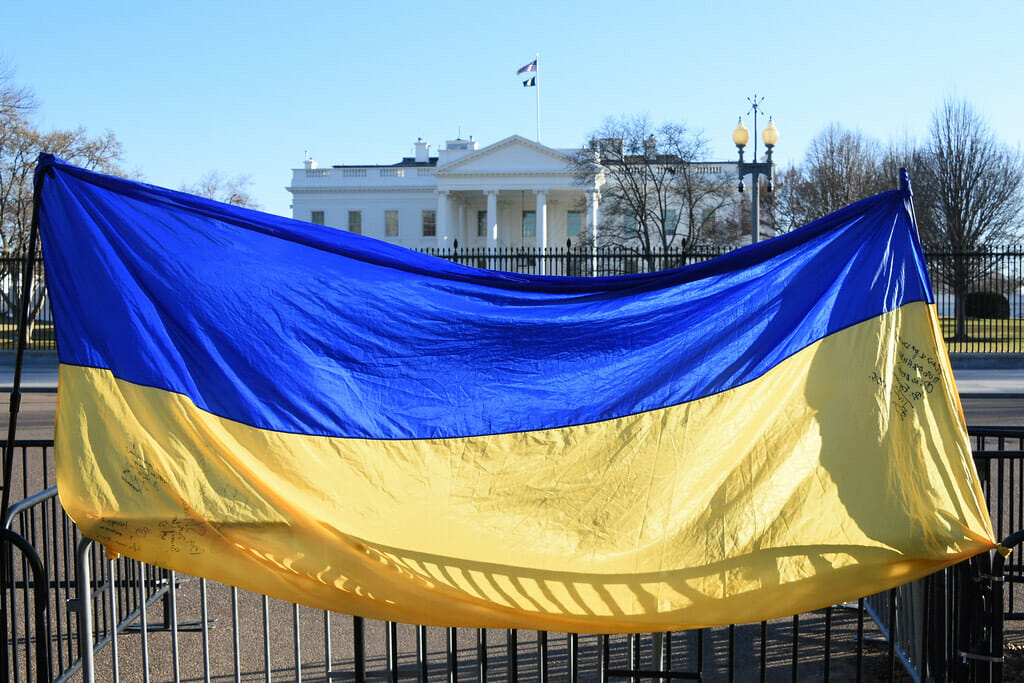(Flickr)
Dear Gen Z,
We’ve had a wake up call.
Until recently, we were the only living generation not exposed to imminent danger.
For the Silent Generation, it was the rise of fascism and the devastating consequences of World War II. For the Baby Boomers, it was the Cold War, Korea, Vietnam and the looming threat of mutually assured destruction. For Generation X, it may have been the first Gulf War and the AIDS epidemic. For Millennials, one could point to 9/11 and the wars in Afghanistan and Iraq.
In just two years, we have found our generation challenged as it has never been. We have lived through a global pandemic, claiming the lives of over 6 million people worldwide. We have had our lives overturned with restrictions, lockdowns, and masking. We watched in horror as our country haphazardly withdrew from a 19-year war in Afghanistan. Yet, now, it is the crisis in Ukraine that is demanding our attention.
One could argue that our focus on Ukraine could be due to a Eurocentric bias. After all, there are also crises in Ethiopia, Syria, Yemen, Somalia, Afghanistan, and countless other regions of the globe. Frankly, certain nations are not receiving the media coverage they deserve, and that comes from a place of racial and cultural insensitivity. That needs to change.
Nevertheless, Ukraine feels different. Ukraine is unique among these troubled countries because it is a democratic nation that has succeeded in implementing stable institutions, breaking from the totalitarian legacy of the former Soviet Union. It is an infantile yet courageous democracy that could serve as a bulwark against Russian aggression into former Soviet territories. It is being besieged, and so the West is involved in an impossible calculus. Do we sit by as the western powers did prior to WWII, or do we risk an escalation that could involve nuclear weaponry?
As events continue to unfold, we must continue to pay attention to the news cycle. Our generation has greater access to information than ever before, and that comes with both benefits and drawbacks, making it hard to discern what is accurate.
On February 24, 2022, the first day of the Russian invasion of Ukraine, two Russian warships attacked Snake Island, 40 miles from the Ukrainian mainland. The confrontation went viral worldwide when 13 Ukrainian soldiers adamantly refused to surrender to the Russian warship. Later on TikTok, viewers may have seen a viral clip featuring the heroes of Snake Island, which wrongly stated that all 13 of the soldiers had died. The Ukrainian Navy has since confirmed their survival.
Beyond the rampant flow of disinformation, we are also continually desensitized. We laugh and marvel at Russian and Ukrainian soldiers filming dances of themselves from the bunker and the battlefield. On Instagram, we scroll through memes somehow poking fun at the possibility of a World War III.
In fact, the propaganda campaign is part of Russia’s military strategy (and to a much lesser extent, that of Ukraine). Ukrainians have been characterized as “neo-Nazis” and “crisis actors,” so we must be vigilant when considering the motivations behind this disinformation.
If we wanted to, we could simply close our laptops and look the other way.
Instead, we urge you to investigate. Stay informed with fair and impartial news sources.
See how the courage and selflessness of a leader is rallying his people to continue the fight.
See that Kyiv remains under curfew as Russia steps up airstrikes.
See how a combination of economic pressures from a united front can stall full-blown continental war and American deaths – and possibly prevent our enemy from achieving its sinister goal.
See how in Ukraine, maternity clinics, playgrounds, and a memorial for the Holocaust have been mercilessly targeted and destroyed.
See how in Russia, citizens are now living through Soviet-era censorship and intimidation.
So far, the only sacrifice we have to make is an uptick in gas prices. It is worth remembering that the Cold War ended just 30 years ago. And as Bret Stephens, an opinion columnist for The New York Times, points out, it is critical to recognize the parallels between the precipitating events leading up to World War II and our current moment:
“World War II didn’t so much begin as it gathered, like water rising until it breaches a dam. We, too, have been living through years of rising waters, though it took Russia’s invasion of Ukraine for much of the world to notice.”
In our history classes, we have discussed the upsurge of authoritarianism and democratic backsliding worldwide. This reality is more apparent than ever.
Our generation is not immune to the crises that line our history textbooks.
Read. Write your representatives. Pay attention. History is happening.
Sincerely,
Gen Z








